27th Session of the OSS Strategic Orientation Committee, Tunis, January 28, 2025
Held on January 28, 2025 in Tunis, the 27th session of the Strategic Orientation…
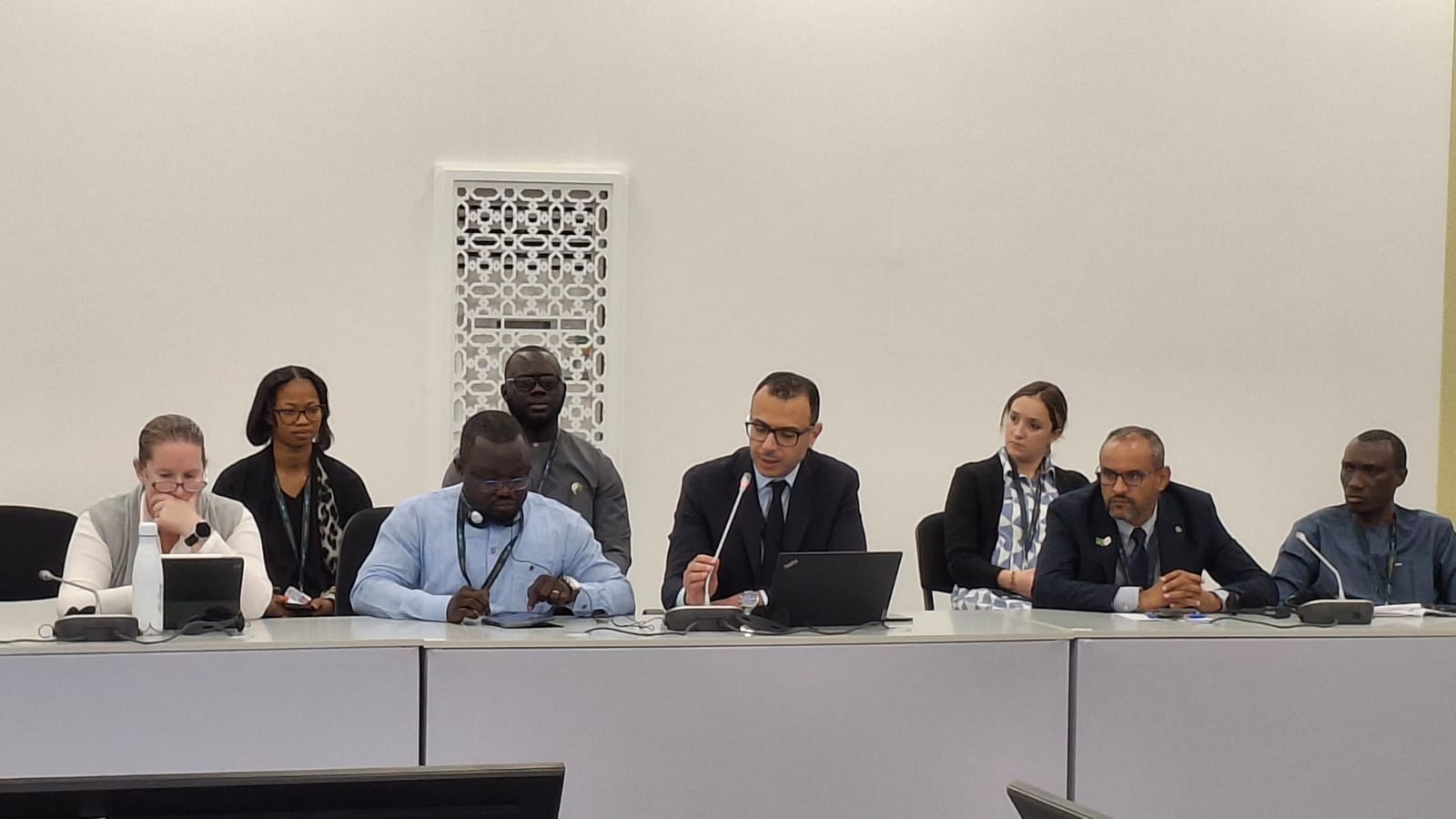
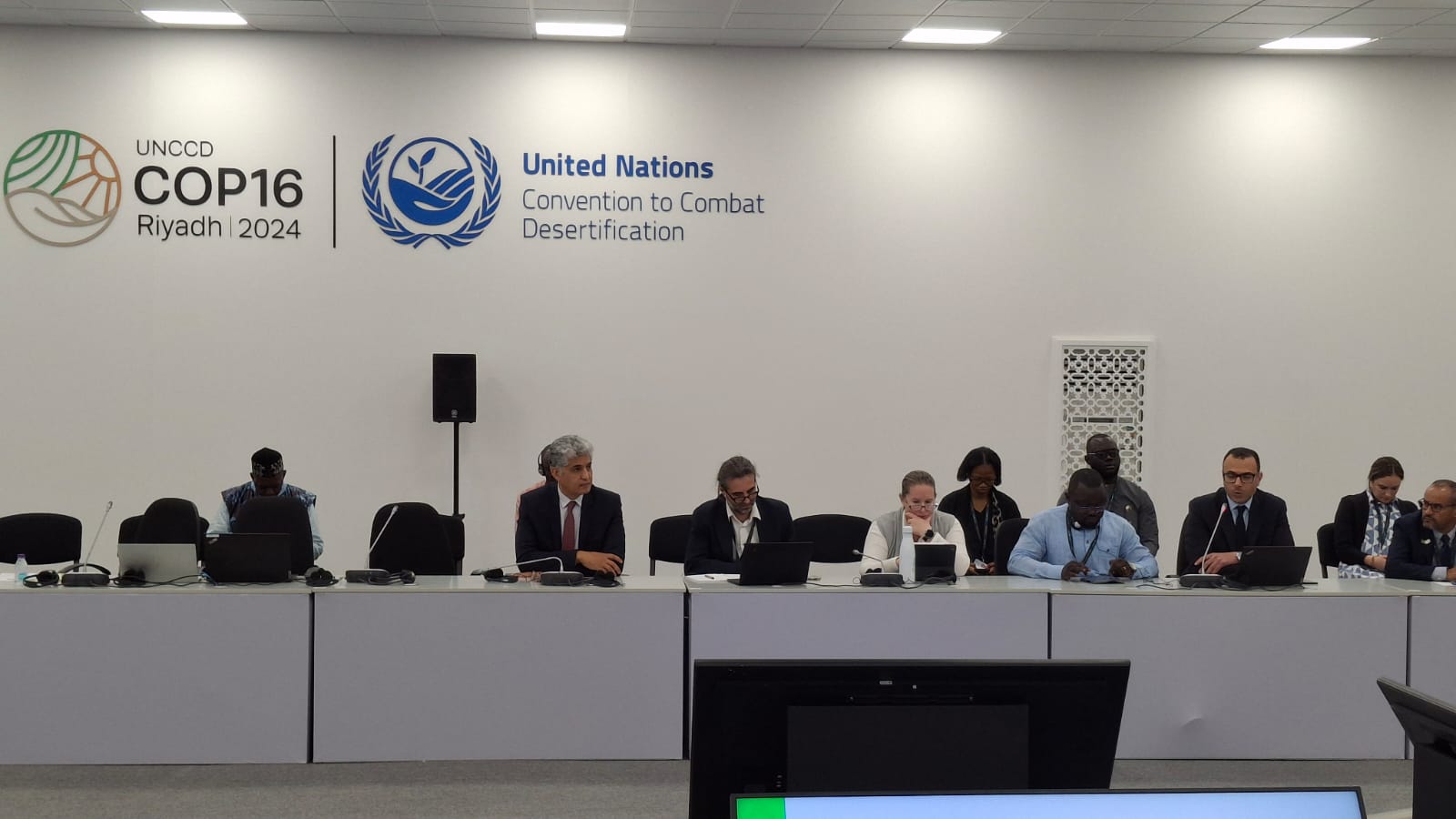
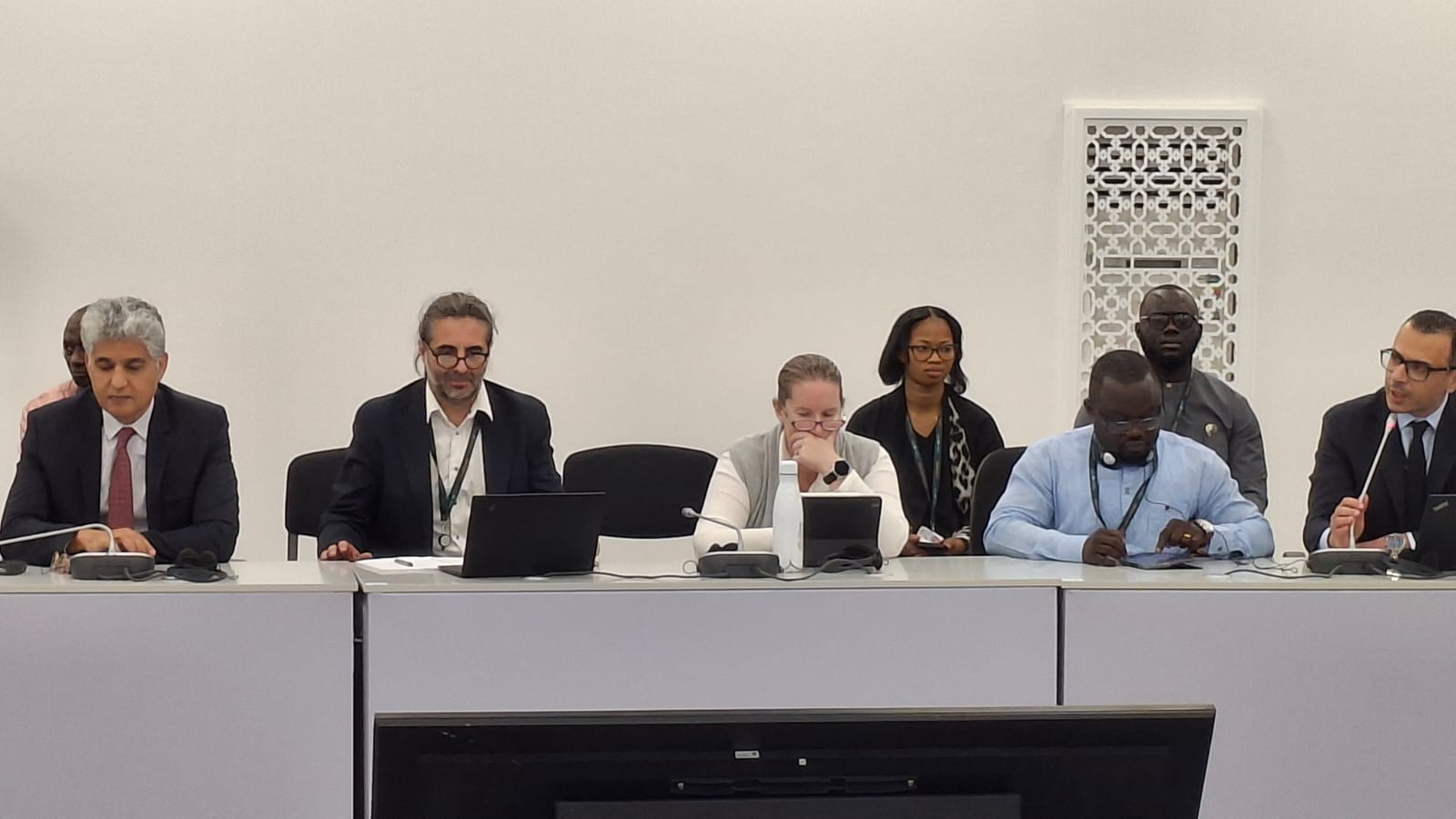
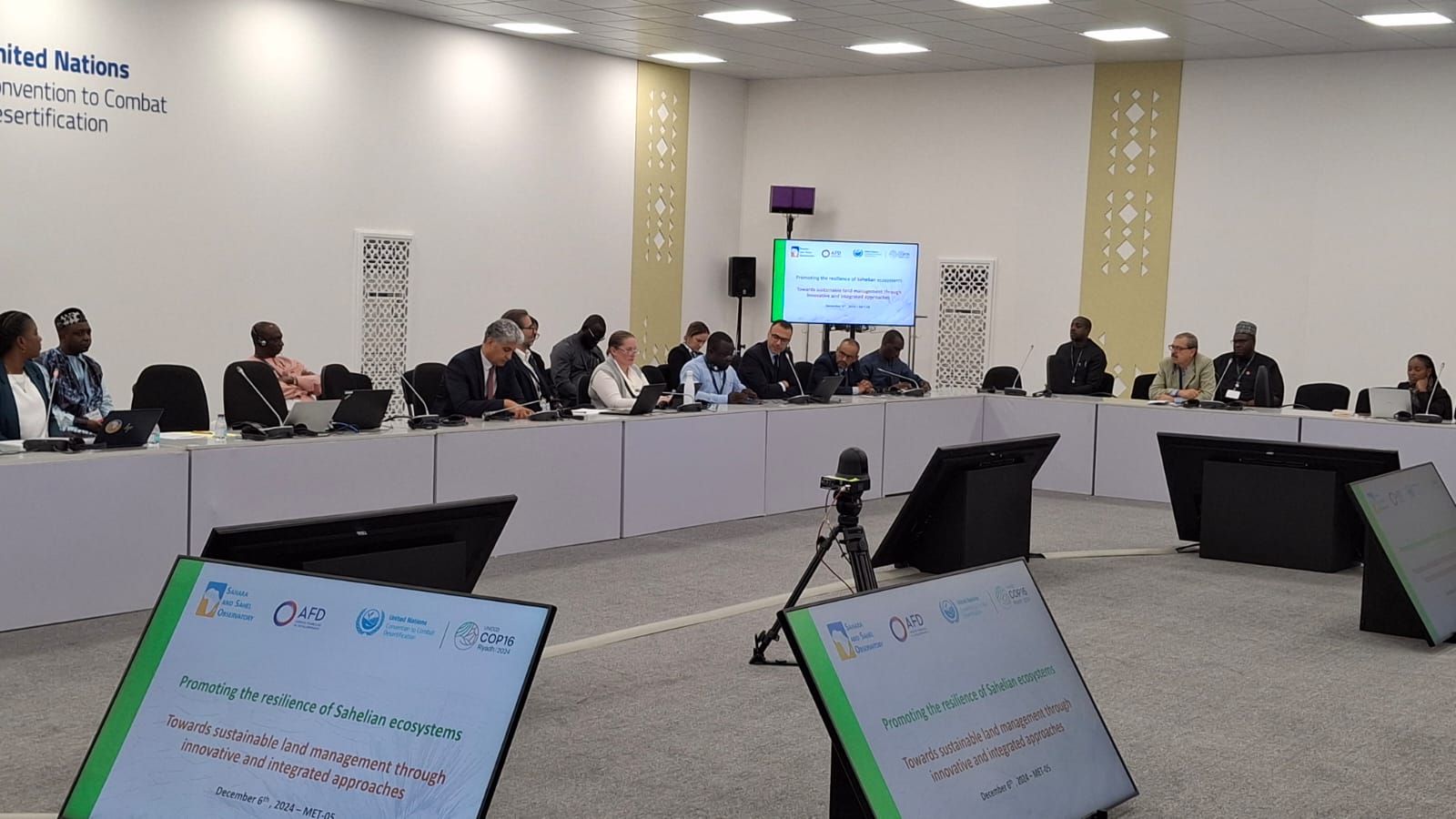
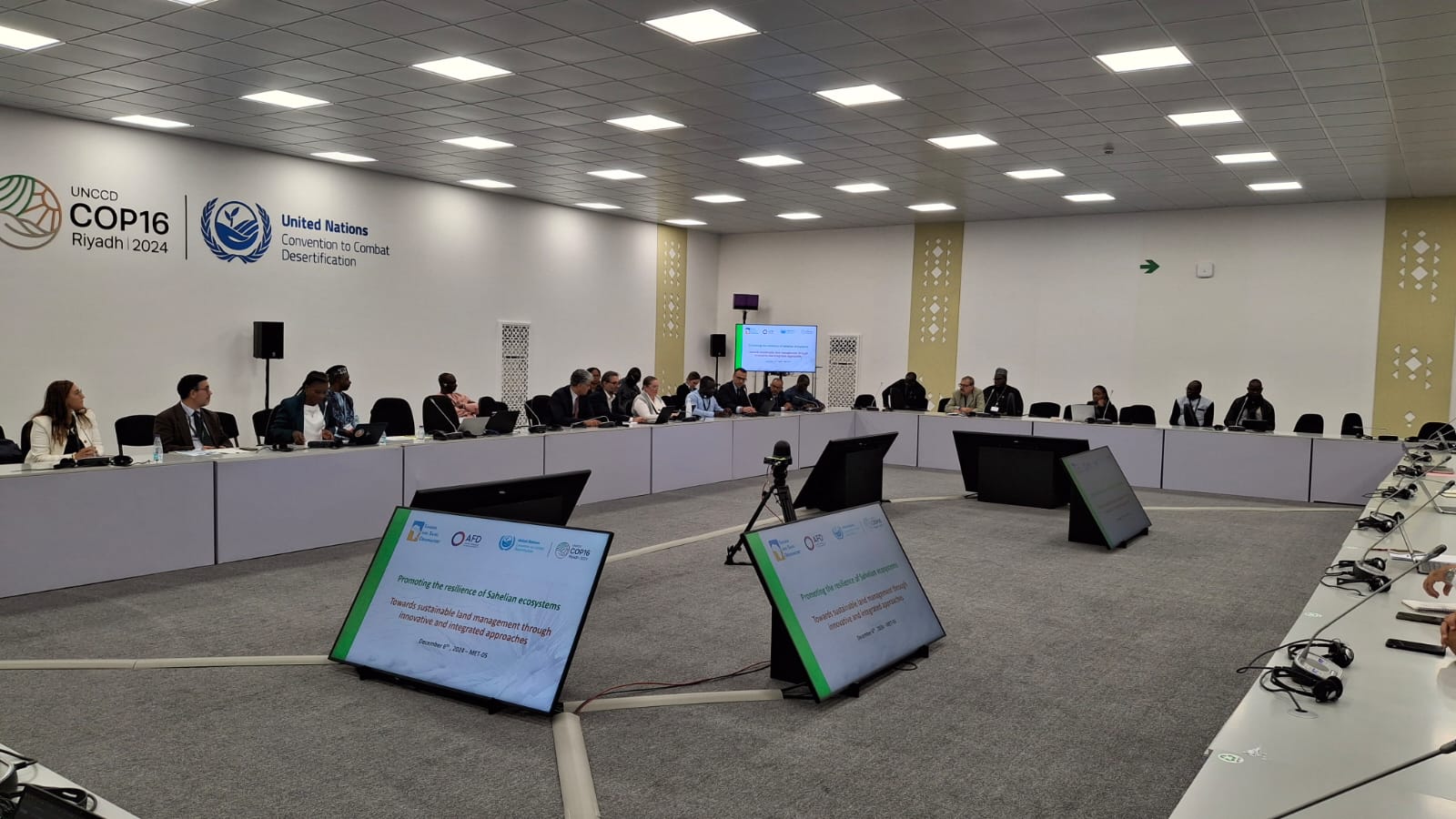
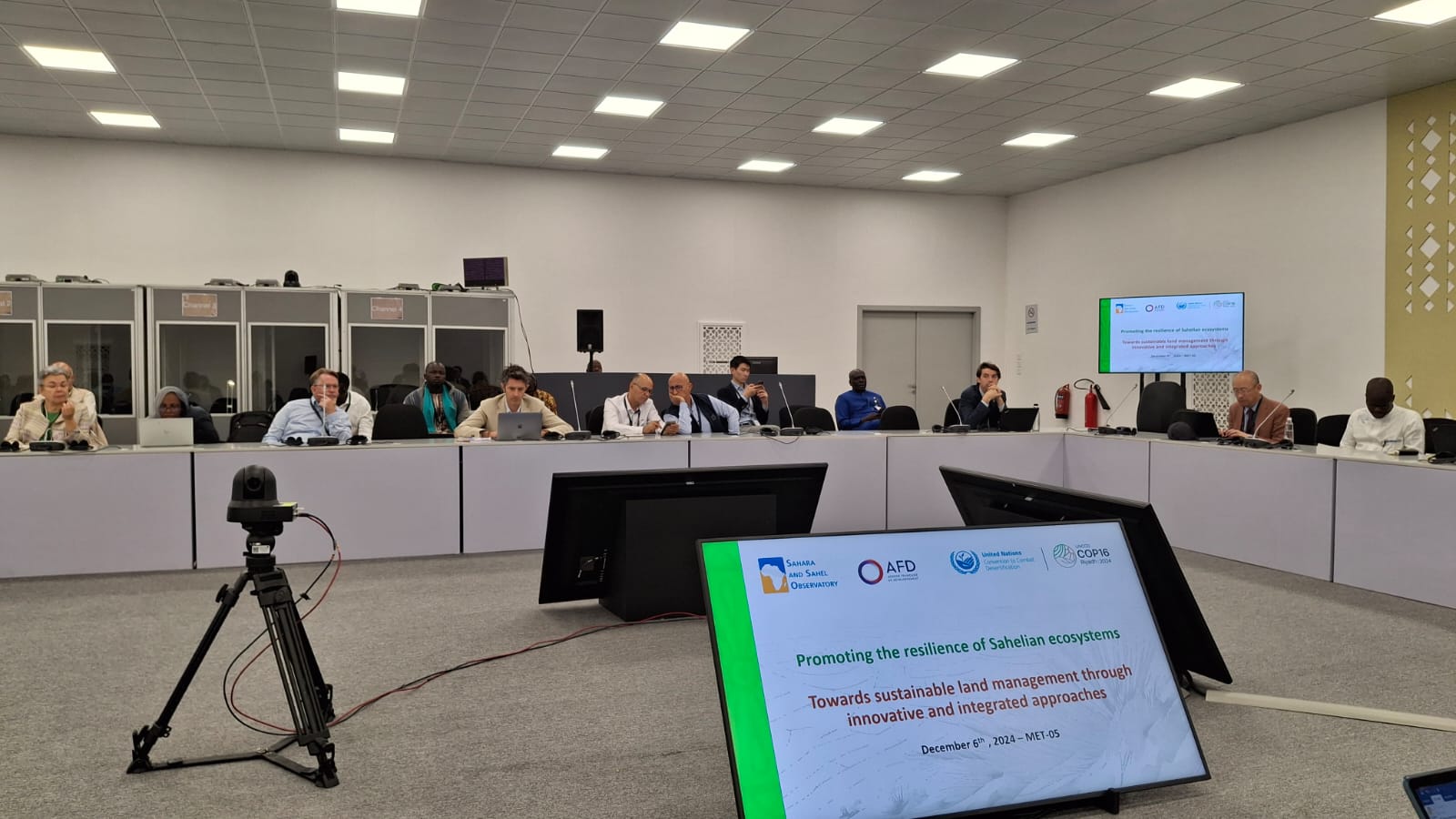
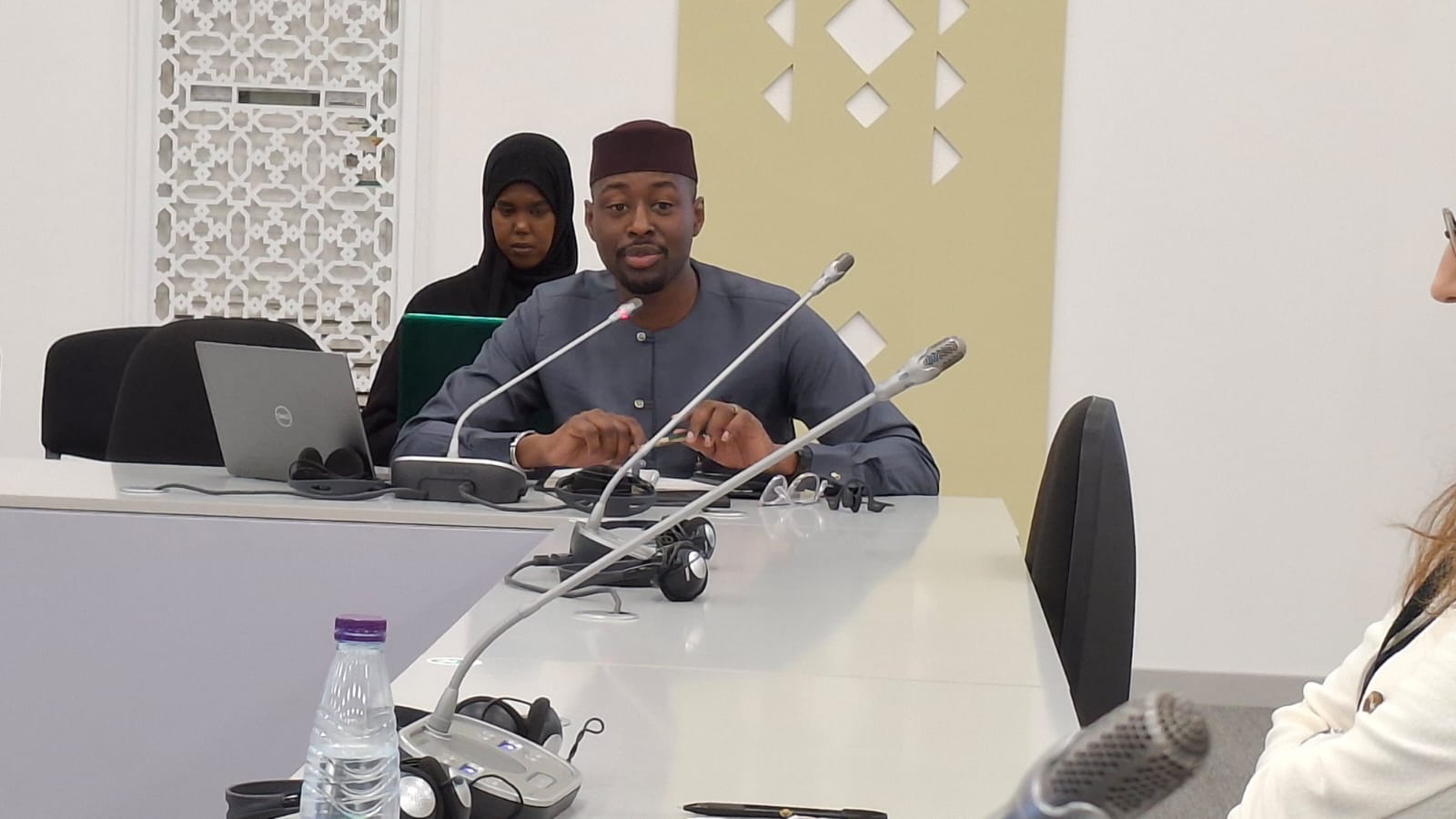
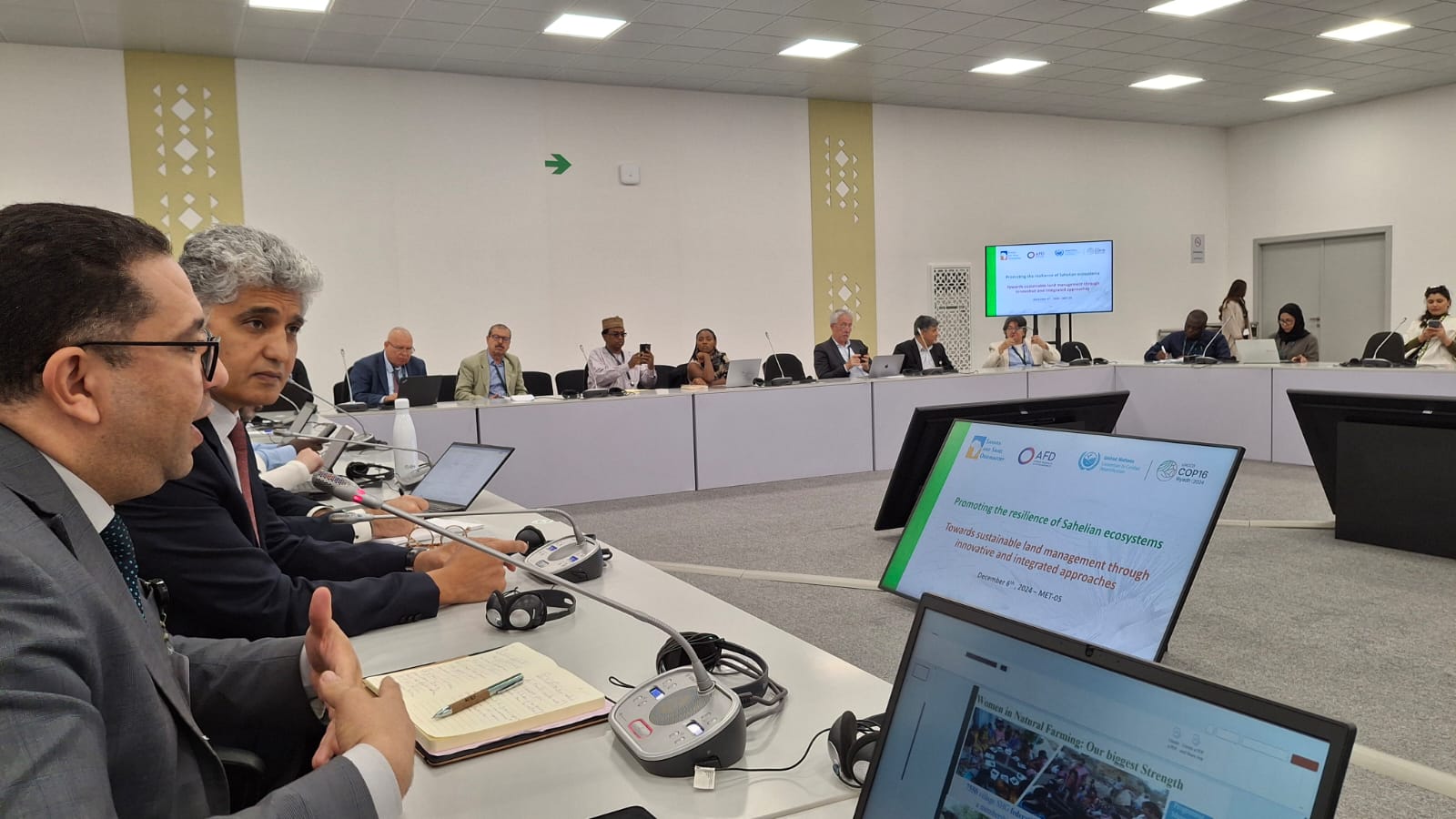
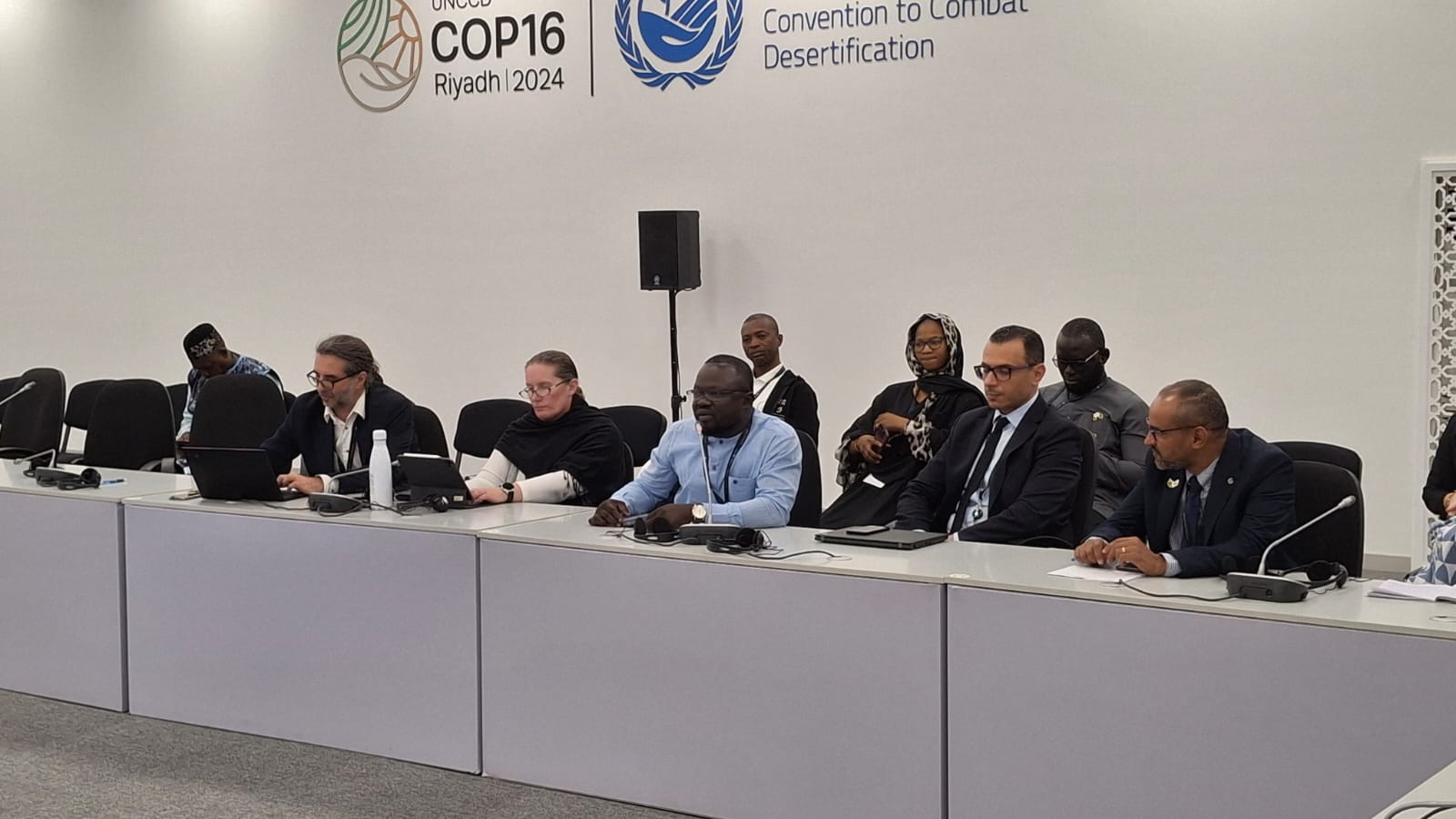
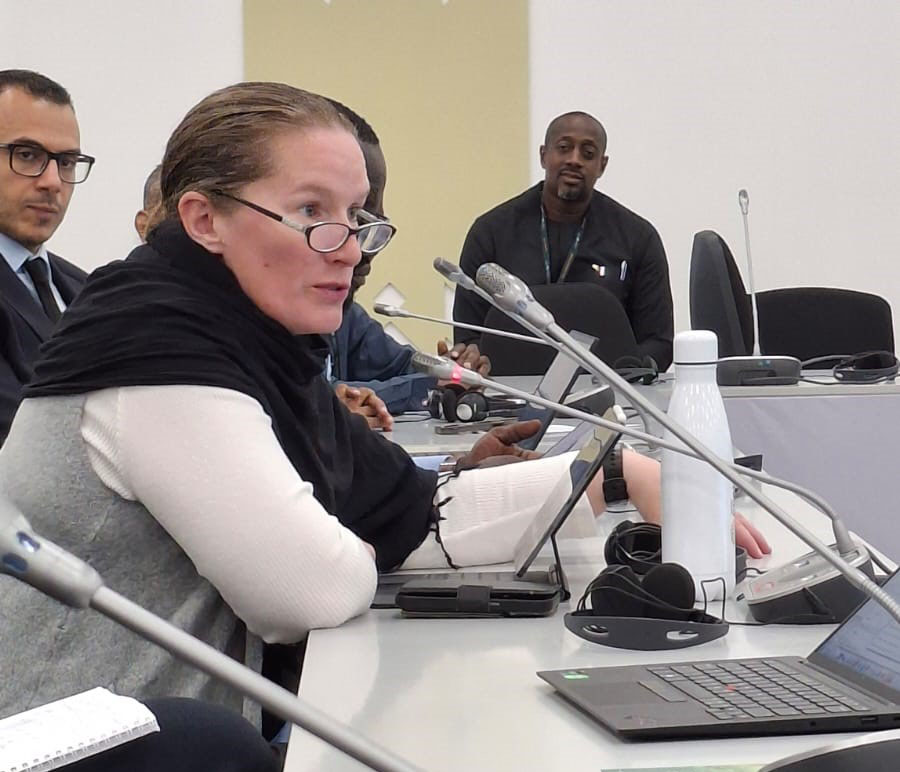
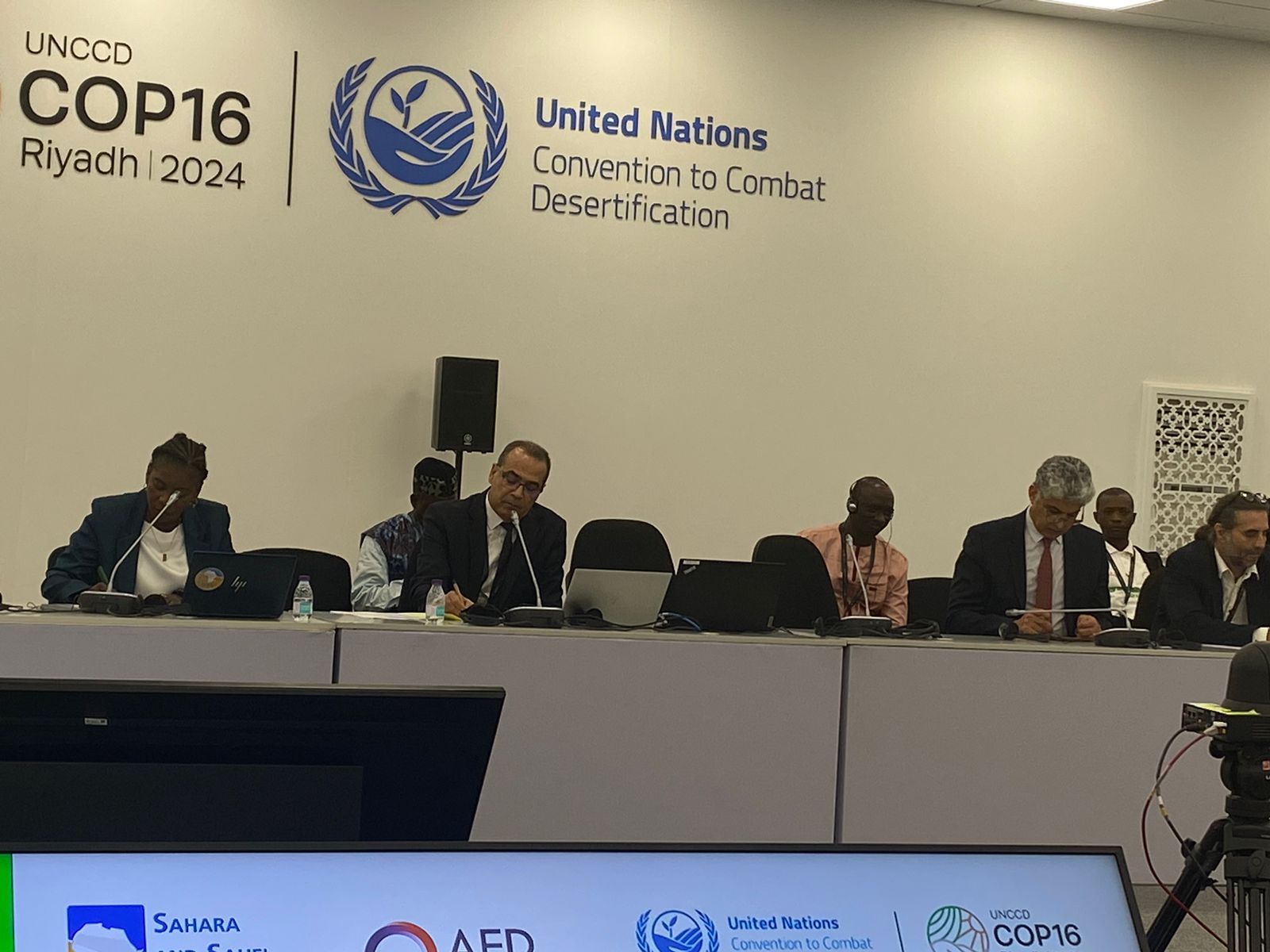
Promoting sustainable land management and ecosystem restoration in the Sahel
As part of the 16th session of the Conference of the Parties (COP16) of the United Nations Convention to Combat Desertification (UNCCD), which is being held in Riyadh, Saudi Arabia, from December 2 to 13, 2024, the Sahara and Sahel Observatory (OSS), with the support of the Agence Française de Développement (AFD), organized on December 6, 2024, a side-event on promoting the resilience of Sahelian ecosystems, towards sustainable land management through innovative and integrated approaches.
The event brought together more than 60 participants, including many key players such as government representatives, scientific experts, policy makers, representatives of the secretariats of international conventions on the Fight against Desertification (CFD) and Biological Diversity (CBD), technical and financial partners as well as members of civil society and other key stakeholders.
In his opening speech, Mr. Nabil BEN KHATRA, Executive Secretary of the Sahara and Sahel Observatory, highlighted the Organization strategic efforts to combat land degradation and improve the resilience of Sahelian ecosystems, restating the unfailing commitment to supporting regional and international endeavour for such a target.
Mr. Khalid CHERKI, President of the Africa Group, recalled the vulnerability of African countries to drought and therefore the need to develop monitoring and early warning tools. The official opening remarks delivered by the Senior Advisor, on behalf of Mrs. Djami DIALLO, Minister of Environment and Sustainable Development of Guinea, highlighted the pressing need of adopting innovative and integrated approaches to address desertification and land degradation, particularly in the Sahelian regions. He stressed the importance of strengthening financing mechanisms for local and regional initiatives, including those aimed at restoring degraded ecosystems and supporting the livelihoods of rural communities. He also praised the efforts of the OSS and its partners, particularly for their commitment to promoting sustainable solutions and strong involvement of local stakeholders, while calling for increased mobilization to achieve the objectives of the Great Green Wall initiative.
The event was moderated by Mrs. Ndeye Fatou MAR, OSS Land & Biodiversity Department Director, who explained that despite the growing challenges related to land degradation and climate change that Sahelian countries are facing, improving the living conditions of the populations was still possible.
Mr. Ghazi GADER, Project and Program Coordinator at the OSS, highlighted the OSS initiatives, including the development and implementation of innovative tools for monitoring land degradation and decision-making support for better management of natural resources.
Promising discussions and a rich and diverse panel made it possible to address water-energy nexus issues and approaches to support sustainable land management actions, with the experience of the Union for the Mediterranean (Mr. Almotaz ABADI).
The Representative of the Convention on Biological Diversity, Mr. Jihed GHANNEM, recalled the targets of the global biodiversity framework and the close links between combating land degradation and preserving ecosystems.
Mr. Gilles OUEGRAEGO (UNCCD) shared lessons and progress of the GGW and called upon all partners to scale up land restoration successes. Representatives of UNDP Morocco, Mrs. Amal NADIM, SOS Sahel of Chad, Mr. Etienne DJEDANGOMBAYE and of Tunisia, Mr. Mohamed DRIDI, shared experiences of ecosystem restoration with local management systems managed by the communities, examples of payment for ecosystem services to preserve natural areas, and the use of innovative methods such as the ENCA methodology for the development of sustainable tourism. Mr. Maxime THIBON, of IFAD, recalled the importance of investing in small and medium-sized farmers at the local level. He highlighted the role that IFAD plays in coordinating investments for the Great Green Wall.
The side event ended with a light of hope and a call for a change in narratives on the Sahel, driven by the inspiring speech of Dr. Valerie Hickey, World Bank Environment Department Global Director. She summarized the sustained exchanges, highlighting three fundamental strategic avenues to address the challenges facing this region.
The need for reliable, accessible and affordable data: The availability of quality data is a pre-requisite for informed decision-making. These data must not only be collected and analyzed rigorously, but also made available to decision-makers, local communities and stakeholders at an affordable cost through information systems, while making sure that they are accessible to users at all levels.
Sharing lessons learned and good practices: The critical importance of having a collaborative framework allowing all stakeholders to share their experiences and innovative solutions. This knowledge transfer is essential to optimize the impact of existing initiatives and avoid the pitfalls of the past.
A sustainable capacity building system: The need to design training and capacity building programs that are sustainable, inclusive and adapted to local needs. These systems must not only equip local actors to better manage land, but also enable them to sustainably take ownership of the proposed solutions, while building their resilience to future challenges.
Held on January 28, 2025 in Tunis, the 27th session of the Strategic Orientation…
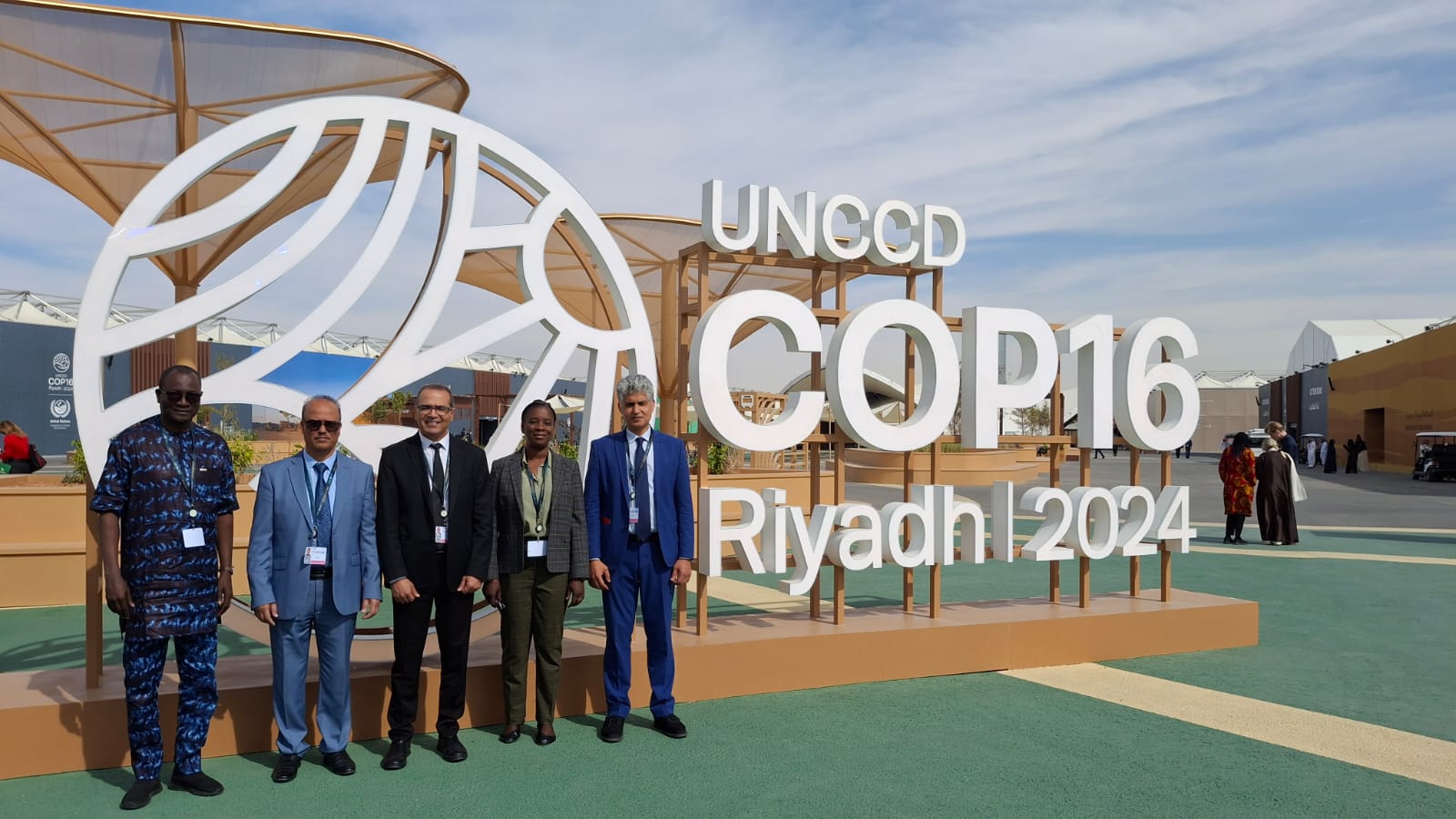
The participation of the Sahara and Sahel…
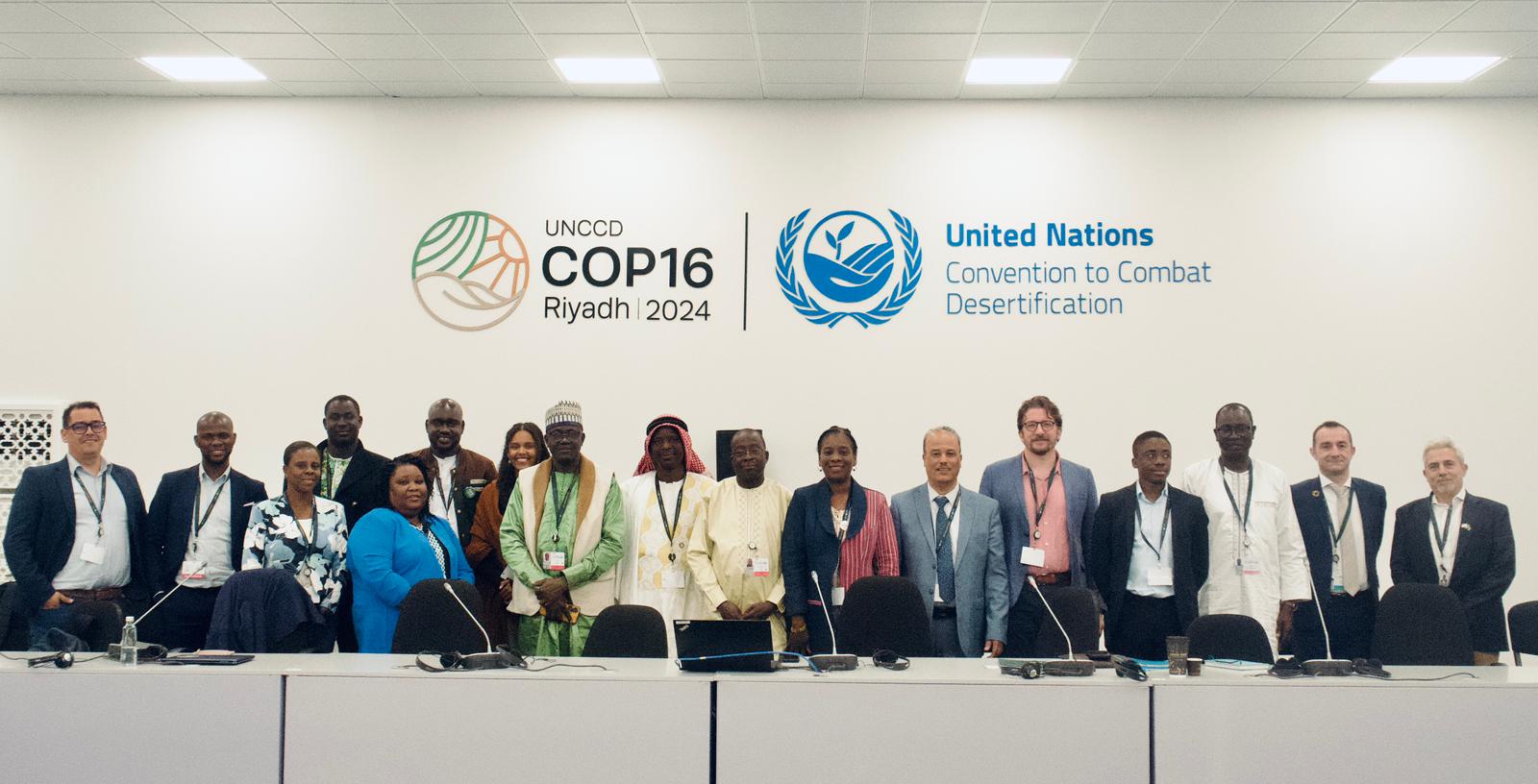
OSS Side Event at COP16: Strengthening Resilience in the Sahel through Multi-…